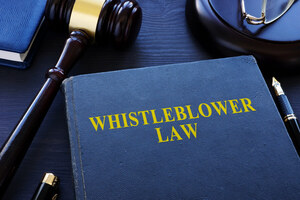 The revolving door and the fraud that followed
The revolving door and the fraud that followed The underlying facts of United States ex re. Marstellar v. Tilton are complicated because they involve several military procurement contracts negotiated over a period of years with MD Helicopters, as well as a significant re-interpretation of the requirements of the federal False Claims Act (FCA). Nonetheless, the basic story is that the military contractor unfairly influenced the contract award process by dangling the offer of a post-retirement job in front of the individual in charge of making the decision.
The key players are:
- Colonel Norbert Vergez, who was the Program Manager for the Army's Program Management Office for Non-Standard Rotary Wing Aircraft during the time the contracts were awarded;
- Lynn Tilton, who had described herself as the business world's "turnaround queen" and who was then the CEO of MD Helicopters; and
- Philip Marsteller and Robert Swisher, two former MD Helicopter employees, who filed a FCA complaint.
In a related but separate action in 2015, Vergez pled guilty to making false statements and criminal conflict of interest. The charges stemmed from his failure to report receiving $30,000 for “relocation expenses” related to his immediate post-service employment with a corporate affiliate of MD Helicopter and from his nondisclosure of the gift of a $4,000 Rolex watch to his wife.
In the meantime, the government declined to pursue the lawsuit on its own, freeing Marsteller and Swisher to pursue it on behalf of the government, as a qui tam case. Following trial, a federal jury found the company guilty of widespread fraud. The largest claim against the company is for $108.7 million by the Fraud Section of Civil Division of the U.S. Department of Justice.
According to documents filed with the United States Bankruptcy Court for the District of Delaware, that is only a portion of MD Helicopter’s fraud liability. The company apparently owes between $100 million and $500 million to at least 1,000 creditors.
False Claims Act
The FCA provides that any person who knowingly submits false claims to the government may be liable for three times the government’s damages plus a penalty of between $5,000 and $10,000 for each false claim.
In addition to allowing the United States to pursue perpetrators of fraud on its own, the FCA allows private citizens to file suits on behalf of the government against those who have defrauded the government. Private citizens who successfully bring qui tam actions may receive a portion of the government’s recovery.
If the government declines to intervene in the qui tam action, the whistleblower is generally entitled to receive between 25 to 30 percent of the amount recovered by the government. The whistleblower’s share is paid out of the amount received by the government from the defendant. If a qui tam action is successful, the whistleblower is also entitled to legal fees and other expenses of the action by the defendant. The amount that Marstellar and Swisher will receive is still subject to negotiation, but could be as much as $30,000, plus costs.
Debtor-in-possession 11 bankruptcy
READ MORE WHISTLEBLOWER LEGAL NEWS
The most obvious reason for seeking this status from the bankruptcy court is that the assets are used as part of a functioning business with higher resale value than the assets alone. Debtor-in-possession status lets bankrupt companies avoid liquidating assets rock bottom prices, and can work to the benefit of creditors. This is often a transitional step on the way to full liquidation.
